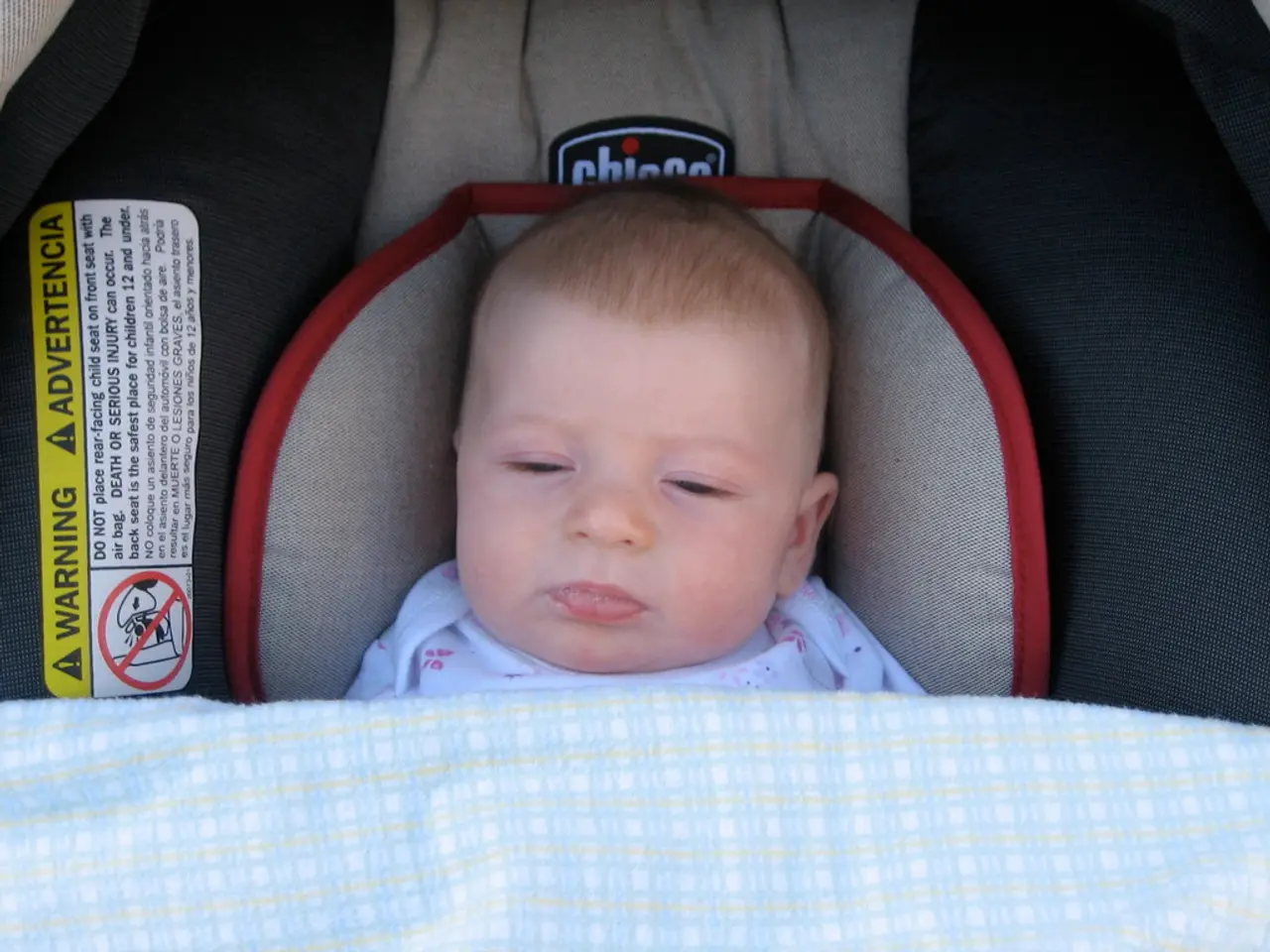Guide on Handling a Child Ingesting a Button Battery
In a world where technology is becoming increasingly prevalent, a recent study published in Pediatrics has shed light on a potentially dangerous aspect that parents and caregivers need to be aware of - button battery ingestion.
According to the study, the number of children under six who accidentally swallow foreign objects has doubled over the past two decades, with a significant increase in the consumption of button batteries. In fact, the number of incidents involving button battery ingestion rose by more than 90%.
Button batteries, coin-shaped batteries powering various household items like watches, hearing aids, car keys, and children's toys, can pose a serious threat if ingested by a child. Pediatrician Lisa Diard, MD, reported that about 800,000 kids come to the emergency room each year due to foreign body ingestion, with the rate of ingestion going up, particularly for batteries.
The study demonstrated that honey, when used as a protective esophageal irrigation, could potentially reduce the severity of damage in a child swallowing a button battery. However, it's crucial to note that honey is extremely dangerous for children under a year old and should not be given to them if they swallow a button battery.
If you suspect your child has swallowed a foreign object, prompt action is essential. Call Poison Control (1.800.222.1222) or the National Battery Ingestion Hotline (1.800.498.8666) for immediate assistance. Additionally, call the child's doctor or 911 if the situation seems critical.
To prevent such incidents, parents can keep children safe by ensuring battery compartments are secure and inaccessible to kids. Supervising their use of devices containing button batteries, such as remote controls, scales, digital watches, toys, cameras, and medical devices, is also crucial. Promptly disposing of used batteries can prevent accidental ingestion.
It's important to keep track of how many button batteries are in the household and store them safely out of reach. If a used button battery needs to be disposed of, tape both sides and store it in a secure bag until you can recycle it.
Parents and caregivers should also be aware of what objects in their home contain button batteries and keep them out of a child's reach. Toys that use button batteries should only be played with under supervision. Dr. Diard recommends using child-proofing devices and making sure they are tightly screwed in to keep button batteries out of a child's reach.
In conclusion, the rising trend of button battery ingestion in children is a cause for concern. Symptoms of button battery ingestion include refusing to eat or drink, coughing or choking, chest pain or discomfort, difficulty swallowing, excessive drooling, noisy breathing, a hoarse voice or sore throat, abdominal pain or vomiting, bloody stool, saliva or vomit. By taking necessary precautions and being vigilant, we can help ensure the safety of our children.








